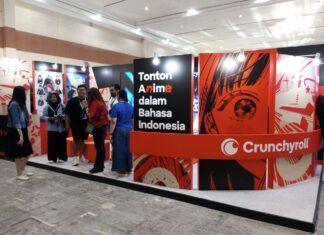On Monday, February 16 2015, various media outlets in the UK were busy reporting on the HSBC scandal as their main topic. The HSBC scandal, or better known as Swissleaks, revealed how HSBC, one of the largest banks in the world, helped their clients to avoid paying taxes. Shockingly, its clients include government officials and celebrities in the United Kingdom.
BBC and The Guardian (one of the media that I read regularly) put up a comprehensive coverage of the HSBC scandal, while on the following day, the Daily Mail, The Times, and the Financial Times (a widely respected business newspapers, on par with the Nikkei in Japan*) also took part in covering the HSBC scandal on their headlines. But The Telegraph, one of the prominent right-leaning newspaper in the UK (perhaps as “right” as Kompas is in Indonesia) only covered the news in a small column on page two.
Shortly after, Peter Osborne, a senior reporter at The Telegraph, suddenly resigned and in a special blog post, shared his frustration at The Telegraph editorial, which he considered has prioritized advertisers’ interests rather than maintaining integrity. Osborne alleged that, The Telegraph had received advertising money from HSBC since early 2013, and reporters were asked not to make any negative coverages about HSBC. A number of critical reports about HSBC, which had already gone online, were also withdrawn from The Telegraph website.
Within the context of Indonesia, during the 2014 General Election, we were no strangers to various media outlets blindly supporting their respective political patrons. But if it’s only a matter of political choice, this is normal because in practice, neutrality can be said to be non-existent in ideological terms.
But the problem arises when media space has been entangled by the interests of large conglomerate groups. In Indonesia, the opinions and news coverages of TV stations are closely aligned with the interests of the media owners, causing a degradation in the quality of contents of the TV station within the last 15 years. This is the point emphasized by the Indonesian Broadcasting Commission (KPI) while discussing about broadcast regulation with KAORI (6/2).
The media bias becomes even more dangerous if an important issue fails to be discussed or becomes trivialized. Power in Foucauldian terms is at work in the case of TVOne’s coverage of Sidoarjo mud spill, for example.
Then, within a narrower context, How do Japanese culture–oriented media Indonesia position themselves while covering an event? For example, some time ago, the availability of bootlegged goods in an anime event became a scandal within the anime community. But It was not covered by any media outlets (including by KAORI). Another case was the troubled implementation of electronic payment in another event that was also absent from the attention of mainstream media while it was thoroughly discussed by blogs. These are important public issues regardless of the relations of the media that cover the events.
With Foucauldian power relations at work in all aspects of life, can the media, in the context of Japanese culture scene in Indonesia, getting free entry tickets to cover events and thus, be in the sphere of influence of the event organizers, continue maintaining their independence and remain critical to issues that concern the interests of their readers? Or can they continue to write articles that raises more unpleasant sides of Japan?
Eventually, The Telegraph and TVOne were unable to resist the pressure from their capital owners.
*Note: Financial Times was acquired by Nikkei.Inc on November 2015 after this article was originally written.
By Kevin Wilyan | The writer is a senior editor at KAORI Nusantara | Translated by Angga Pratama | This article was originally published in Indonesian at KAORI Nusantara on 20 February 2015 | This opinion is the personal views of the author and does not represent the views and editorial policy of The Indonesian Times or KAORI Nusantara







